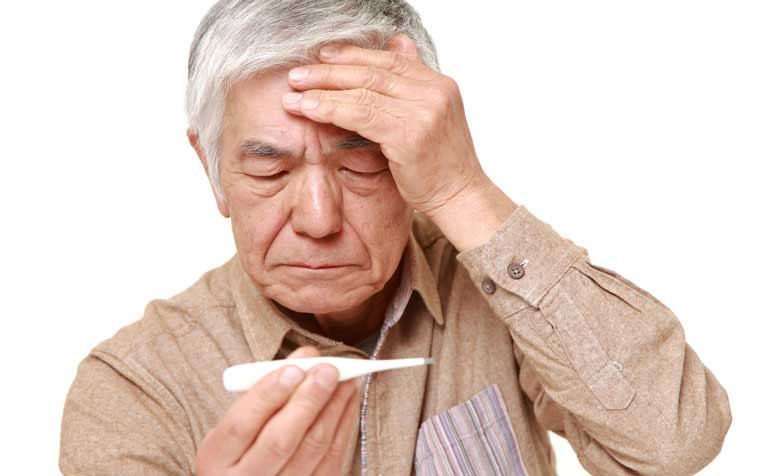HealthXchange will NEVER ask you to transfer money over a call. If in doubt, call the 24/7 ScamShield helpline at 1799, or visit the ScamShield website at www.scamshield.gov.sg.
Bacterial Meningitis in the Elderly: Symptoms and Treatment

Bacteria meningitis includes symptoms such as a high fever or a headache.
Bacterial meningitis symptoms
Bacterial meningitis symptoms typically begin suddenly and progress rapidly, within 24 hours. In adults and elderly patients, bacterial meningitis symptoms may include the following:
- Sudden high fever
- Headache
- Stiff neck
- Confusion
- Drowsiness
- Irritability
- Seizures
- Stroke
However, elderly patients often do not present with the typical meningitis symptoms. Even if meningitis symptoms are present in these patients, they may be mild or attributed to some other underlying medical condition.
“Often, confusion may be the only symptom of bacterial meningitis in the elderly,” says Dr Limin Wijaya, Senior Consultant, Department of Infectious Diseases, Singapore General Hospital (SGH), a member of the SingHealth group.
Bacterial meningitis treatment
Bacterial meningitis is diagnosed with the help of a combination of a thorough physical examination, blood and urine tests, and imaging tests (X-ray and CT scan). A lumbar puncture (spinal tap) is usually recommended to analyse the patient’s cerebrospinal fluid. It is important to know what bacteria is causing the meningitis so as to help the doctors understand how best to treat and predict the severity of the meningitis.
Given the serious nature of the disease, bacterial meningitis patients are hospitalised immediately and treated with intravenous antibiotics. Corticosteroids may also be administered as part of bacterial meningitis treatment, to bring down the inflammation of the meninges. These are dependent on the bacteria causing the meningitis.
Early bacterial meningitis treatment can help elderly patients with underlying medical conditions or a weak immune system recover. If treatment is delayed, patients may develop complications such as blood poisoning (septicaemia) and brain damage, which can lead to death.
Ref. Q15
Contributed by
Related Articles
Public Events
Get the Health Buddy App
© 2025 SingHealth Group. All Rights Reserved.















 Get it on Google Play
Get it on Google Play